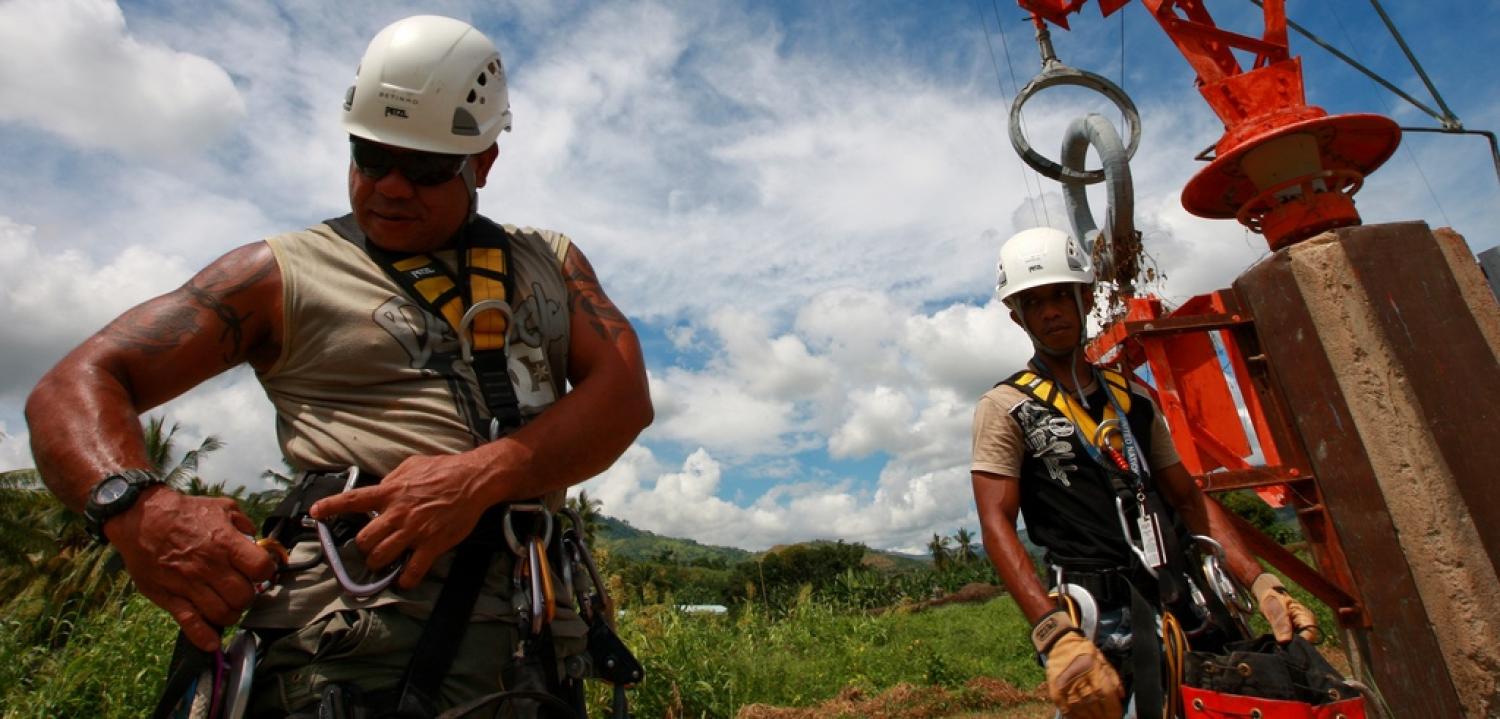The departure of ABC Managing Director Michelle Guthrie just two-and-a-half years into her five-year term reflects the board’s decision to seek "fresh leadership", according to Chairman Justin Milne. Announcing Guthrie’s sacking today, Milne said “the board’s foremost consideration was the long-term interests of our own people and the millions of Australians who engage with ABC content every week”.
What Milne didn’t talk about was the millions of listeners, viewers and online visitors to the ABC who have been lost since the federal government and the ABC itself made cuts to its international output. The appointment of a new Managing Director opens up the opportunity for Guthrie's replacement to re-engage the ABC with its international audience, particularly in the Pacific.
As respected former international broadcasting executives Ian MacIntosh and Bruce Dover pointed out last month on The Interpreter: "Australia’s international voice, once strong, influential and broadcast across much of the Asia Pacific, has become little more than a croak into the ether."
The demise of a strong Australian media voice throughout the Pacific has seen Radio NZ Pacific (formerly Radio NZ International) become the dominant international media outlet in the south-west Pacific, Melanesia, Polynesia and Micronesia. Lurking in the background is Radio China International, which has taken many of the ABC’s shortwave frequencies, and is reportedly spending billions in foreign language programming to boost its presence.
However, all is not lost, if the example of RNZ Pacific is anything to go by. Expanding from a miniscule, barely heard broadcaster since 1947, Radio NZ International was given a new lease of life in 1990 with powerful 150kw transmitters and is now truly the voice of the Pacific. It has done this by:
- Gaining the trust of Pacific listeners through a consistent and reliable presence.
- Having Pacific voices and content on air and online in English and Pacific languages.
- Reporting without prejudice events in the Pacific, including Australia and New Zealand.
- Establishing genuine partnerships with broadcasters in the region, which record and replay RNZ Pacific programs, including news, sport, weather, and features.
It’s a prime example of a ‘progressive small state’ that has capitalised on the use of soft power, relying on "respect, trust, admiration, persuasiveness, and leadership rather than compulsion by an armed force or a dominant economy" to promote security and stability in its region, wrote Professor Steve Hoadley in the New Zealand International Review.
RNZ Pacific broadcasts now reach from East Timor in the west to French Polynesia in the east, covering all the countries and territories in between. It can also be heard in parts of Europe and the Americas.
In 2016, RNZ Pacific began using a digital/analogue transmitter and swapping between its digital short-wave and analogue short-wave modes throughout the day. The digital short-wave mode delivers a signal to relaying Pacific stations, and the analogue short-wave mode reaches individual short-wave listeners. Satellite delivery has also been extended, and RNZ Pacific has a strong online presence, which relay stations can use to download content, although internet access in the Pacific is often slow and expensive.
RNZ Pacific produces most of its own programming, including on regional current affairs and Pacific business, as well as news bulletins in various Pacific languages. Many Pacific Island radio stations rebroadcast news, current affairs and weather, either off the satellite or shortwave, or via the internet. Unlike the ABC, RNZ Pacific’s commitment to remote areas has been a top priority.
The content and delivery of RNZ Pacific’s service would not have been as successful without the meaningful engagement between RNZ Pacific and local broadcasters. ABC senior executives powered down and then closed completely Australia’s shortwave service in 2015/16, but shortwave is still important in Papua New Guinea, its Highlands and the outer islands where the bulk of its 8 million people live, and the rest of the Pacific Islands.
International broadcasting has a two-way effect. The return is intelligence in the form of information and analysis, which the late New Zealand Prime Minister, David Lange, discovered after Fiji’s first coup in 1987. “Without such a presence, as Prime Minister Lange discovered when he had no direct and effective way to reduce the fear and alarm caused by Fiji’s 1987 coup d’etat, Pacific people will assume New Zealand doesn’t care, and base their views on what they’re told by the loud voices of commercialism and propaganda,” said former RNZ Pacific Station Manager Ian Johnstone. “The worst fate for anyone hoping to promote a positive view of themselves or their actions, is not to be heard.”
Let’s hope the ABC board will ensure its new Managing Director follows that dictum.
This article is based on Kevin McQuillan's submission to the DFAT Soft Power Review.
